
|
July 2021 | Volume 16 | Number 5
|
|
|
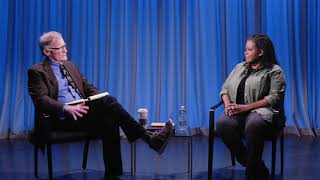
FROM THE EDITOR
Welcome to the new Biographer’s Craft! As mentioned in my previous editor’s letter, we’ve been working on updates to give you all the current biography news in the best way possible. I hope you enjoyed the first edition of our new newsletter, The Insider, mailed to you earlier this month, with up-to-the-minute news, notes, events, and shorter items of interest. Now here’s our time honored “magazine,” with the feature articles and interviews that you’ve grown accustomed to enjoying.
In this month’s magazine, you’ll find recaps of all twelve panels from the 2021 Virtual BIO Conference, an interview with member Patricia Laurence, a look at member Candice Hooper’s writing environment, and our regular “Amanuensis” feature (this time about unreliable witnesses). Next up: August will feature our regular biography-on-film issue.
All of this content will be archived on BIO’s website and searchable in the Member’s Area. Please forgive any technical glitches as we make the transition with these updates. Thank you to all who have helped make our updated newsletters possible and thank you especially to our members, whose readership is what makes all of this possible.
Going forward: You can help us by contributing to our “Writers at Work” feature. Send along a picture or two of your work space, along with a caption. And we’re always open to suggestions for the “Members’ Voices” column.
I hope everyone is having a great summer!
Stay well,
Michael Burgan
|
|
|

2021 BIO Conference: Highlights from the Panels
Over the two main days of the BIO Conference, almost 50 panelists and moderators looked at such issues as interviewing, getting funding for a biography, writing about marginalized lives, and writing the first biography of a subject. With assistance from BIO member John Grady, here are recaps of the 12 panels. (Conference attendees received a link to view videos of each of these sessions.)
|
Reflections in a Funhouse Mirror
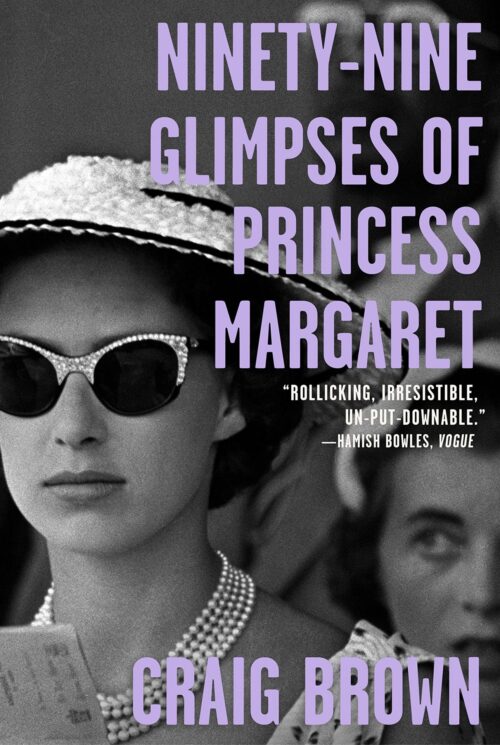 Craig Brown's Ninety-Nine Glimpses of Princess Margaret was just one of the books discussed by this panel.
Craig Brown's Ninety-Nine Glimpses of Princess Margaret was just one of the books discussed by this panel.
Amanda Vaill introduced the session by noting that traditional biographies often follow a linear narrative, with the narrator taking an omniscient distance from their subject. Vaill said that the three panelists—Craig Brown, Ash Carter, and Gilliam Gill—created “polyphonic, kaleidoscopic narratives, they just blow the roof off of biography.” FULL STORY
One Subject, Three Ways: Agatha Christie
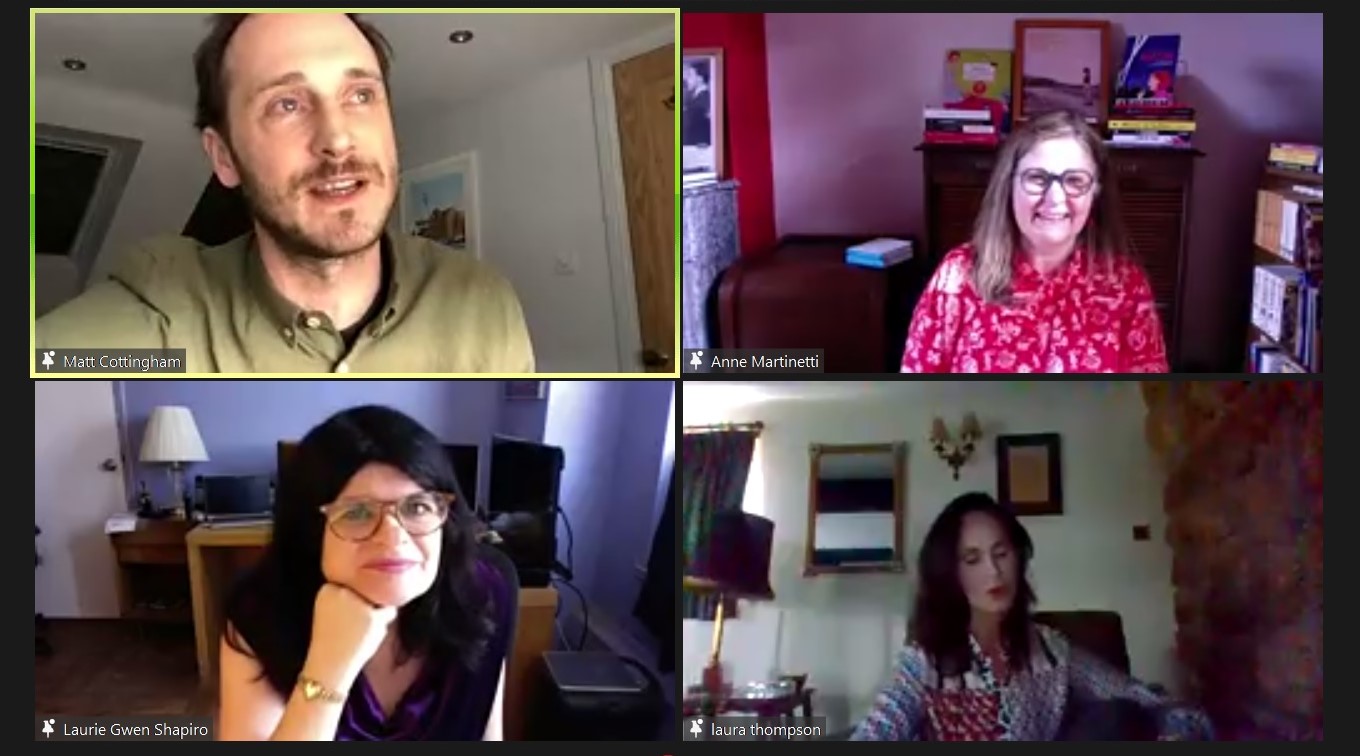 Clockwise from upper-right: Anne Martinetti, Laura Thompson, Laurie Gwen Shapiro, and Matt Cottingham.
Clockwise from upper-right: Anne Martinetti, Laura Thompson, Laurie Gwen Shapiro, and Matt Cottingham.
Moderator Laurie Gwen Shapiro kicked off the session with the question, “How does the form chosen to tell a subject’s life shape its content?” In this case, the subject was Agatha Christie. Exploring Shapiro’s question were three panelists Zooming in from England and France: Matt Cottingham (in London), who made the documentary Inside the Mind of Agatha Christie; Laura Thompson (just outside London), who is the author of Agatha Christie: A Mysterious Life; and Anne Martinetti (in Paris), who wrote a cookbook based on Christie’s work, called Creams and Punishments, coauthored the graphic biography Agatha: The Real Life of Agatha Christie, and wrote a documentary about Christie’s adaptations in movies, The Inheritance Crime. FULL STORY
The Art and Technology of Interviewing
Moderator James McGrath Morris and panelists Claudia Dreifus, Brian Jay Jones, and John Brady presented similar views about successful interviewing in this panel. They agreed that a biographer should find out as much as they can about the interviewee and be equally prepared when something unexpected arises in the conversation and pursue that topic. FULL STORY
Researching Under-Documented Lives
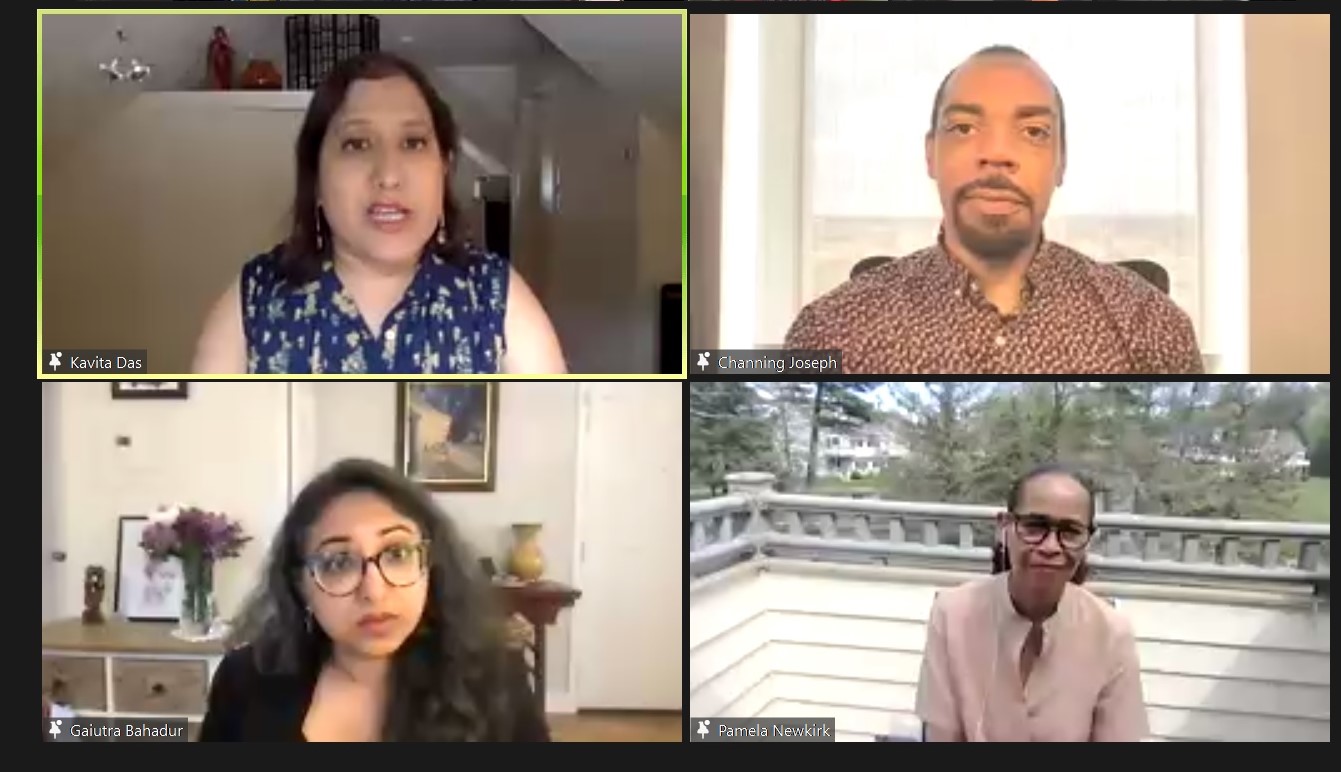 Clockwise from upper right: Channing Gerard Joseph, Pamela Newkirk, Gaiutra Bahadur, and Kavita Das.
Clockwise from upper right: Channing Gerard Joseph, Pamela Newkirk, Gaiutra Bahadur, and Kavita Das.
This panel continued the morning’s plenary discussion, delving deeper into the particular challenges and rewards of researching overlooked and marginalized lives, particularly people of color and those who identify as LGBTQ. Moderator Kavita Das kicked off the discussion by asking what drew the panelists to their subjects. FULL STORY
How To Pay For It, or Funding Your Biography
Moderator Heath Lee started the session by noting that advances, even from major publishers, have been declining in recent years, and she hoped the panel would help biographers find other ways to finance their work. FULL STORY
Writing the First Biography of Your Subject
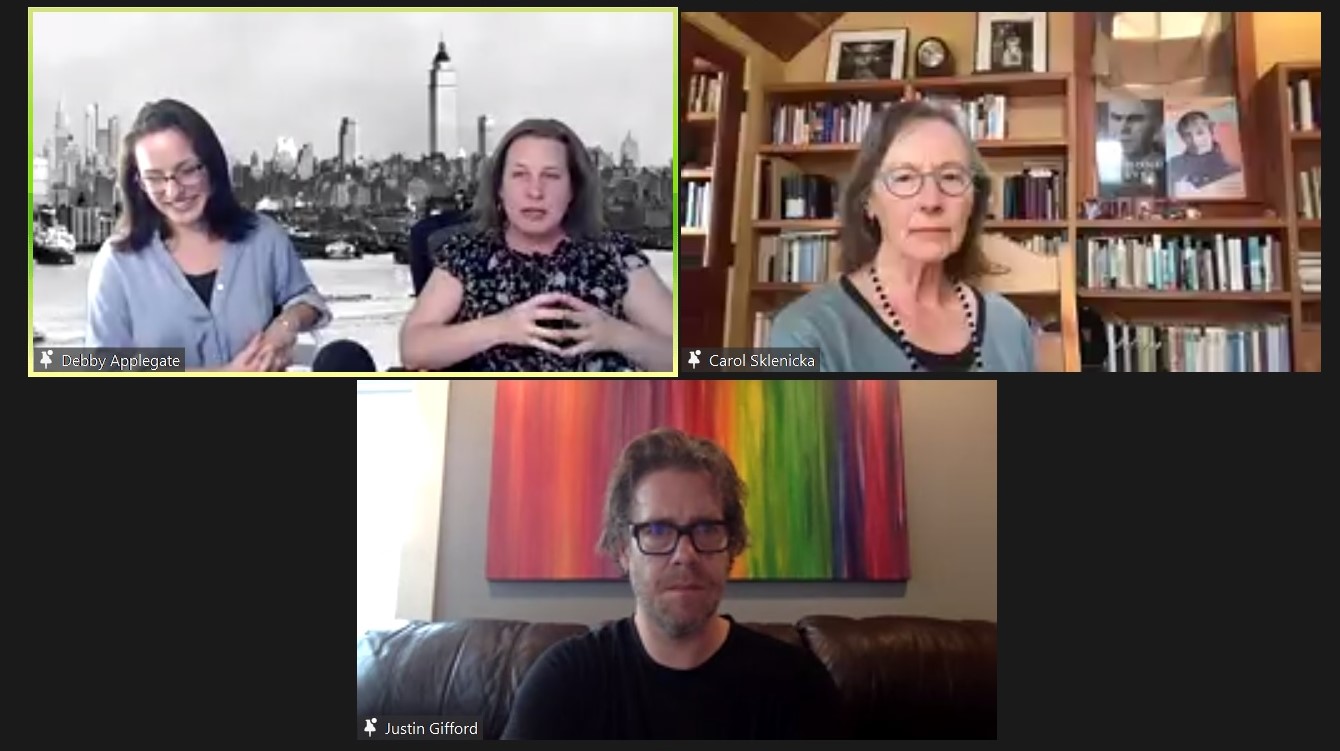 Clockwise from upper right: Carol Sklenicka, Justin Gifford, and Debby Applegate and Abigail Santamaria.
Clockwise from upper right: Carol Sklenicka, Justin Gifford, and Debby Applegate and Abigail Santamaria.
Panelists Justin Gifford, Abigail Santamaria, and Carol Sklenicka, along with moderator Debby Applegate, explored some of the challenges and rewards of writing the first biography of a subject. Sklenicka started the discussion by noting both of her biographies—of writers Raymond Carver and Alice Adams—were the first about her subjects, and she’s never considered doing a second or third biography of a subject. FULL STORY
Swipe Right for Your Subject:
How Do You Know It’s the Right One?
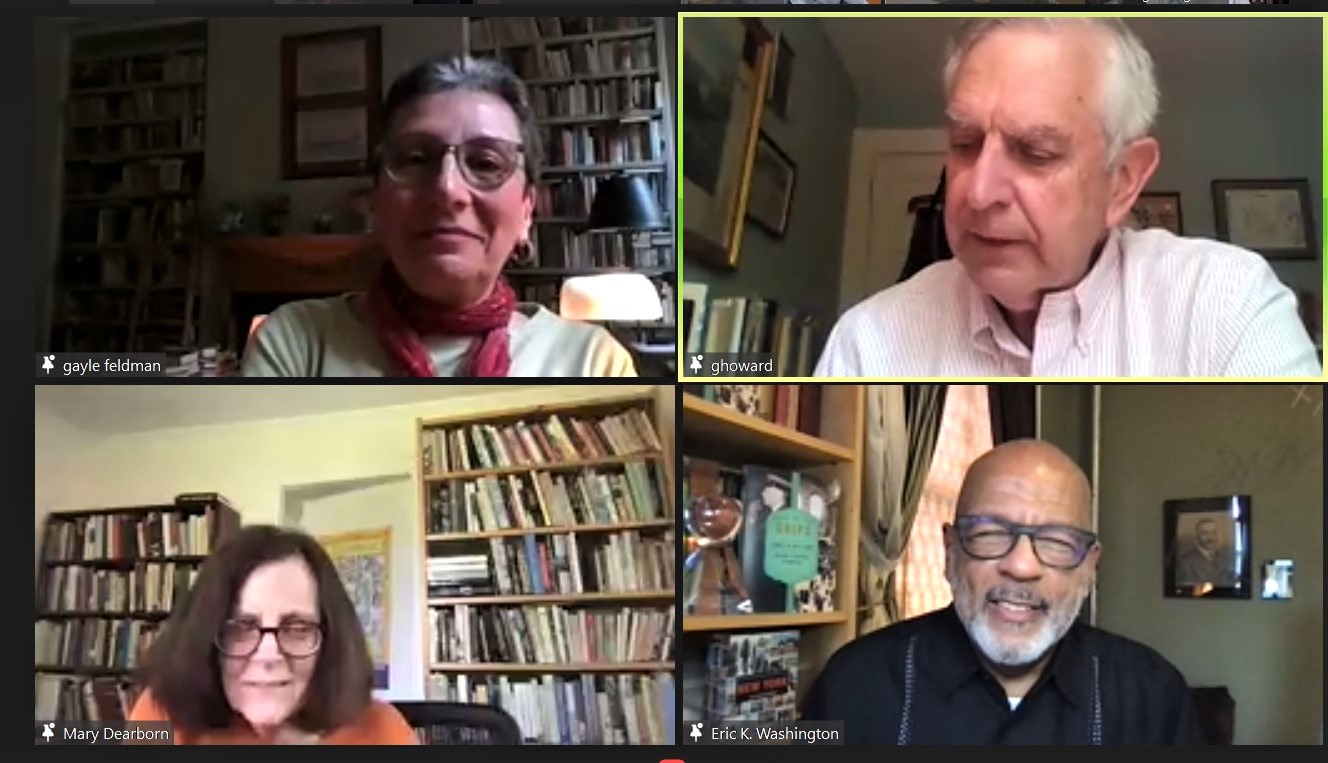 Clockwise from upper right: Gerald Howard, Eric K. Washington, Mary Dearborn, and Gayle Feldman.
Clockwise from upper right: Gerald Howard, Eric K. Washington, Mary Dearborn, and Gayle Feldman.
Moderator Gayle Feldman started this session by recounting a conversation she had with 2010 BIO Award-winner Jean Strouse, in which she asked for Strouse’s advice on beginning her career as a biographer. Strouse’s reply: “If you want to do biography the right way, and get it right, you’d better have chosen the right subject.” Feldman than asked panelists Mary Dearborn, Eric K. Washington, and Gerald Howard how they have chosen their subjects. FULL STORY
What Biographers Can Learn from Obituary Writers
Opening the session on what biographers can learn from obituary writers, Margalit Fox joked that her sister once began a phone call to her by asking “how’s the flash biography business coming?” Fox, a former senior reporter at The New York Times, wrote more than 1,400 obits while at the paper. That “flash” aspect comes when obituary writers have just an afternoon, or perhaps only an hour, to produce copy. Fox acknowledged that there is only so much detail in an obituary, even on major figures. They are “not the whole life” but “the kernel is there,” making an obituary “a really good first stop” for a biographer. FULL STORY
Do I Know Enough? Navigating the Relationship Between Research and Writing
 Kai Bird discussed the important find he made while researching his biography of Jimmy Carter.
Kai Bird discussed the important find he made while researching his biography of Jimmy Carter.
Working on her first biography, moderator Lindsey Whalen said she has had her own struggles with figuring out the relationship between research and writing, noting “they’re hand in hand, but sometimes they can compete with one another, sometimes it’s hard to answer the question, ‘Do I know enough?’” Both Kai Bird, author of a recent biography of Jimmy Carter, and 2017 BIO Award-winner Candice Millard, working on a book on the search for the headwaters of the Nile, agreed on the need for extensive amounts of research before beginning to write, but once they reached that point, the two writers couldn’t be farther apart on how they work. FULL STORY
Group Biography
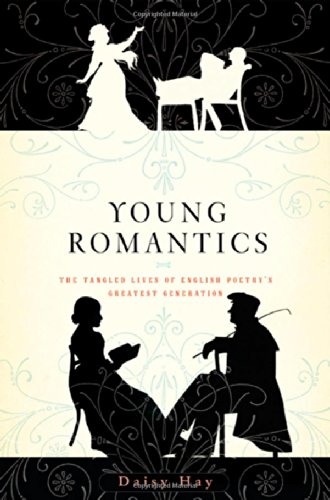 Both Daisy Hay and David Hajdu saw the importance of relationships in the lives of creative subject.
Both Daisy Hay and David Hajdu saw the importance of relationships in the lives of creative subject.
Moderator Gretchen Holbrook Gerzina began the panel by noting that she had gone from writing about a single subject to doing a group biography. She then proceeded to ask the panel about their experiences going from one type to the other, and in so doing “what the challenges, and joys, and problems were.” FULL STORY
The Professors and the Journalists
Moderator Jonathan Alter explained that this panel would explore the relationship between being both a journalist and biographer and the relationship between professional scholars and journalists (a relationship Alter thinks is getting better). FULL STORY
Writing About Writers
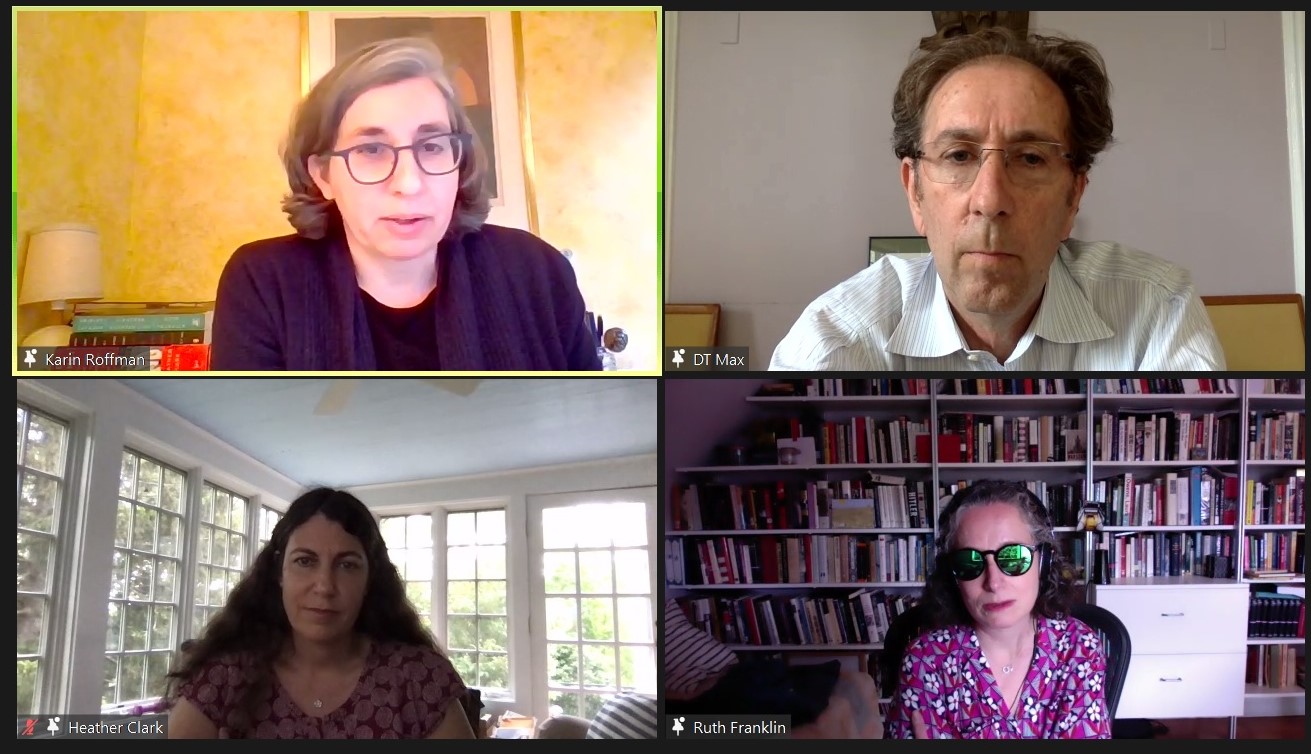 Clockwise from upper right: D. T. Max, Ruth Franklin, Heather Clark, and Karin Roffman.
Clockwise from upper right: D. T. Max, Ruth Franklin, Heather Clark, and Karin Roffman.
Literary biography is one of the more popular subsets of the biography genre. Moderator Karin Roffman (who wrote a biography of the poet John Ashbery) started this session by asking the panelists how they chose the authors they wrote about. FULL STORY
|
|
|
|
MEMBER INTERVIEW
Five Questions with Patricia Laurence
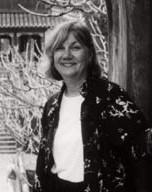
Who is your favorite biographer?
Hermione Lee brings us into an era of self-reflection about the genre and process of biography, and I admire her literary biographies of Virginia Woolf (1996), Edith Wharton, and Penelope Fitzgerald. In her subtle introduction to the Woolf biography, she questions the process, the “truth” and shape of a biography, and makes us aware of the presence of the thinking biographer. She deepens our knowledge of Woolf’s life and mind—behind the work, giving it new dimension. Her writing, graceful yet with a backbone of extensive research, and her structure—thematic with a chronological progression—lightly rests on the “creative facts” of Woolf’s life that burst into illumination (not burdening us with the unnecessary). Biographies are not written by invisible hands, and I trust biographies that integrate doubt into their perspective about the “patchwork” of memory in psychic (interviews) and actual archives; about the vagaries of history—personal, national, global—that influence what material survives; and that question the role of a biographer in an evolving genre. This doubt modifies the trend that a biographer’s aim is to tell the “story” of a life in a linear narrative. Some of our subjects and research do not fit this pattern. Elizabeth Bowen, for example, opposed the coherence and smooth line of traditional biography—or life—as a “falsification,” and urged the preservation of a mosaic or kaleidoscopic pattern in the telling. There are new shapes for biography that eschew a fluid narrative and focus on the thematic, fragmentary, or kaleidoscopic scenes, interior life, or single relationships in a subject’s life. And there are forms that combine literary criticism and group biography in new ways.
What genres besides biography do you read for pleasure?
I read widely and variously depending on the year. I love reading letters (Lytton Strachey says they’re the best part of literature) and while writing my recent biography of Elizabeth Bowen (Elizabeth Bowen: A Literary Life, second edition out in July), I sought letters of friends and lovers to bring her into relief and to create a multi-voiced work: Isaiah Berlin, William Plomer, Charles Ritchie, Humphry House, Virginia Woolf, Eudora Welty (what was available), and Rosamond Lehmann, among others. Recently, I’m diving into Louis Menand’s The Free World: Art and Thought in the Cold War to understand the post-war years of the transnational writers who interest me. It’s heavy lifting, at times, but interweaves policy makers, thinkers, and writers’ perspectives into an original narrative. I’m also now reading, willy-nilly, the Essays of Lydia Davis in quest of new narrative patterns; the poetry of Eavan Boland; [and] Rachel Cusk’s enigmatic Second Place. And I’m always re-reading Virginia Woolf.
What have been your most satisfying moments as a biographer?
Wanting the imprint of the times and the places in which my subjects lived in my work, my most satisfying moments as a biographer are when I travel to a place that they lived in and loved (and where I sometimes find an archive). To write about Julian Bell’s travel to Wuhan University in China where he taught English literature, 1935–1937, and to research the literary relationships between Republican-era Chinese writers and some members of Bloomsbury, I too travelled to Wuhan University. Situated in a hilly park beside a lake, about 400 miles up the Yangtze from Nanking, I met ghosts and walked into the same neo-Chinese buildings with horned roofs (built in 1931 with Boxer Rebellion funds) to spend hours in a Chinese library.
I also experienced Elizabeth Bowen’s textured descriptions of landscape in her writing with more vividness after travel to Cork, Ireland, and Hythe, England. The sprawling green lawns, the Kildorrery Mountains, the swaths of trees where Bowen’s Court once stood, and the wilder landscape of the coastline near Hythe—sea glare and gashes of the cliffs—remained with me.
What have been your most frustrating moments?
My most frustrating moments were waiting for the form of my biography. After doing extensive research, getting to know the circle of people surrounding the subject, deciding on categories for note-taking, and jotting down discoveries along the way, I faced masses of material and facts, quite anxious about what shape the biography would take: how I would structure my biography or find the metaphors to guide me. Quite overwhelming.
What is your current project and at what stage is it?
My current project is yet unformulated but, lately, I’m drawn to reading the juvenilia, the childhood writings of female authors that have recently drawn attention in literary and popular circles. Wandering around the topic.
|
|
THE BIOGRAPHER'S CRAFT
Editor
Holly Van Leuven
Consulting Editor
James McGrath Morris
Copy Editor
Margaret Moore Booker
|
|
|
|